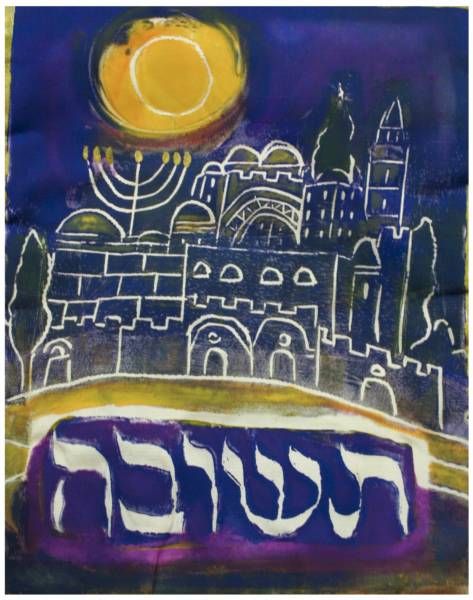
 The primary responsibility of the Jew during the ten days between Rosh Hashanah and Yom Kippur is teshuvah.
The primary responsibility of the Jew during the ten days between Rosh Hashanah and Yom Kippur is teshuvah.
I have posted here classic rabbinic text for study and contemplation during these days. I wish for everyone the strength and courage to confront that which prevents us from being close to the people we love, friends, community, the Jewish people, Torah, and God.
“Repentance must be preceded by the recognition of seven things: (1) the penitent must clearly recognize the heinousness of what s/he has done… (2) S/he must be aware that his/her specific act was legally evil and ignominious… (3) S/he must realize that retribution for his/her misdeed is inevitable… (4) S/he must realize that his/her sin is noted and recorded in the book of his iniquities… (5) S/he must be fully convinced that repentance is the remedy for his/her sickness and the road to recovery from his/her evil deed… (6) S/he must conscientiously reflect upon the bounties the Creator had already bestowed upon him/her, and how S/he had rebelled against God instead of being grateful to the Eternal… (7) S/he must strenuously persevere in keeping away from the evil to which s/he had been addicted and firmly resolve in his/her heart and mind to renounce it. – Bachya ibn Pakuda, Duties of the Heart 7:3
“What is t’shuvah? It is when a sinner abandons his/her sin and removes it from his/her thoughts, and resolves in his/her heart not to do that deed again. As it says, “Let the wicked person forsake his/her way, and the unrighteous one his/her thoughts.” (Isaiah 55:7) And so s/he repents for the past. As it says, “After I turned away, I repented.” (Jeremiah 31:18) And s/he will call the Knower of secrets to testify against him/her that s/he will never again return to this sin. As it does not say, “Nor shall we say ever again to the work of our hands, ‘You are our God’ (Hosea 14:4). And s/he must confess in words these things that s/he has resolved in his/her heart. – Maimonides, Mishnah Torah, Laws of Repentance 2:2
It is very praiseworthy for the penitent to confess publicly and announce his/her sins, and reveal to others the transgressions he committed against his/her fellow. S/he should say to them, “Truly I have sinned against so-and-so by doing such-and-such. But now I am turning and repenting.” Everyone who is arrogant and doesn’t reveal but rather conceals his/her sins – his/her t’shuvah isn’t complete. As it says, “One who conceals his transgressions does not succeed.” (Proverbs 28:13) – Maimonides, Mishnah Torah, Laws of Repentance 2:5
“What is complete t’shuvah? When one comes upon a situation in which s/he once transgressed, and it is possible to do so again, but s/he refrains and doesn’t transgress on account of his/her repentance. – Maimonides, Mishnah Torah, Laws of Repentance 2:1
“Humility is the root and beginning of repentance.” – Bachya ibn Pakuda
“Rabbi Eliezer said, “Repent one day before your death.” His disciples asked him, “Does then one know on what day s/he will die?” “All the more reason s/he should repent today, lest s/he die tomorrow.” – Babylonian Talmud, Shabbat 53a
“Great is repentance, for it brings healing to the world… When an individual repents, s/he is forgiven, and the entire world with him.” Babylonian Talmud, Yoma 86b
“How wonderful is the moral perspective that arises from this great responsibility – a responsibility for all of existence, for all worlds. We have the power to bring favor and light, life, joy, and honor in these worlds. This occurs when we follow the straight path, when we strengthen and gird ourselves with a pure fortitude and conquer paths of life that are good and admired, when we advance and go from strength to strength…. YYet it is also in our power to bring pain to every good portion, when we debase our souls and corrupt our ways, when we darken our spiritual light and suspend our moral purity.” – Rabbi Abraham Isaac Cook, Orot HaKodesh vol. III, p. 63
G’mar chatimah tovah. May you be sealed in the book of life.






















 More news and opinions than at a Shabbat dinner, right in your inbox.
More news and opinions than at a Shabbat dinner, right in your inbox.